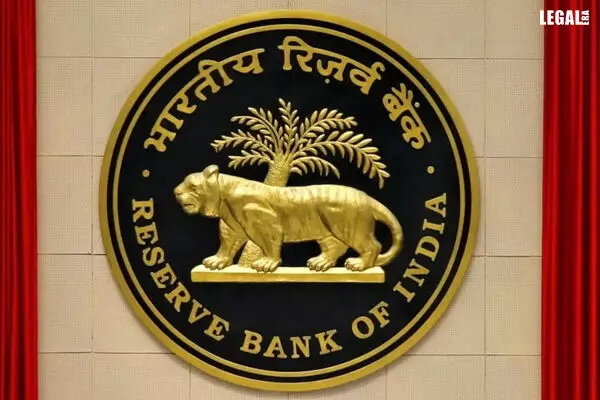- Home
- News
- Articles+
- Aerospace
- Artificial Intelligence
- Agriculture
- Alternate Dispute Resolution
- Arbitration & Mediation
- Banking and Finance
- Bankruptcy
- Book Review
- Bribery & Corruption
- Commercial Litigation
- Competition Law
- Conference Reports
- Consumer Products
- Contract
- Corporate Governance
- Corporate Law
- Covid-19
- Cryptocurrency
- Cybersecurity
- Data Protection
- Defence
- Digital Economy
- E-commerce
- Employment Law
- Energy and Natural Resources
- Entertainment and Sports Law
- Environmental Law
- Environmental, Social, and Governance
- Foreign Direct Investment
- Food and Beverage
- Gaming
- Health Care
- IBC Diaries
- In Focus
- Inclusion & Diversity
- Insurance Law
- Intellectual Property
- International Law
- IP & Tech Era
- Know the Law
- Labour Laws
- Law & Policy and Regulation
- Litigation
- Litigation Funding
- Manufacturing
- Mergers & Acquisitions
- NFTs
- Privacy
- Private Equity
- Project Finance
- Real Estate
- Risk and Compliance
- Student Corner
- Take On Board
- Tax
- Technology Media and Telecom
- Tributes
- Viewpoint
- Zoom In
- Law Firms
- In-House
- Rankings
- E-Magazine
- Legal Era TV
- Events
- Middle East
- Africa
- News
- Articles
- Aerospace
- Artificial Intelligence
- Agriculture
- Alternate Dispute Resolution
- Arbitration & Mediation
- Banking and Finance
- Bankruptcy
- Book Review
- Bribery & Corruption
- Commercial Litigation
- Competition Law
- Conference Reports
- Consumer Products
- Contract
- Corporate Governance
- Corporate Law
- Covid-19
- Cryptocurrency
- Cybersecurity
- Data Protection
- Defence
- Digital Economy
- E-commerce
- Employment Law
- Energy and Natural Resources
- Entertainment and Sports Law
- Environmental Law
- Environmental, Social, and Governance
- Foreign Direct Investment
- Food and Beverage
- Gaming
- Health Care
- IBC Diaries
- In Focus
- Inclusion & Diversity
- Insurance Law
- Intellectual Property
- International Law
- IP & Tech Era
- Know the Law
- Labour Laws
- Law & Policy and Regulation
- Litigation
- Litigation Funding
- Manufacturing
- Mergers & Acquisitions
- NFTs
- Privacy
- Private Equity
- Project Finance
- Real Estate
- Risk and Compliance
- Student Corner
- Take On Board
- Tax
- Technology Media and Telecom
- Tributes
- Viewpoint
- Zoom In
- Law Firms
- In-House
- Rankings
- E-Magazine
- Legal Era TV
- Events
- Middle East
- Africa
RBI Approves ARC’s Listing Plans To Access Funds

RBI Approves ARC’s Listing Plans To Access Funds
They had sought the central bank’s intervention to improve their liquidity and net worth
The Reserve Bank of India (RBI) has approved the proposal of asset reconstruction companies (ARCs), allowing them to raise equity capital. This opens an avenue for the distressed debt aggregators to access funds and widen their shareholding.
However, the central bank clarified, “It must be ensured that listing of equity of ARCs does not violate the requirement of prior approval for any substantial change in management by way of transfer or fresh issue of shares."
The directions mandate that a shareholding of 10 percent, or more is classified as a 'sponsor' of an ARC. Any entity increasing stake above that requires the RBI’s consent.
Hari Hara Mishra, CEO, the Association of ARCs in India said he expected the large and small ARCs to explore listing their shares next year.
Mishra added, "Enabling ARCs to tap the equity market will help broaden the investor base and enhance liquidity, making ease of business-in entry and exit for small investors.”
ARCs have struggled to raise capital even as banks insisted on cash bids from distressed debt aggregators. They faced competition from the government-backed National Asset Reconstruction Co Ltd (NARCL).
The RBI rules for ARCs state that the bad loan aggregators must reach Rs.300 crore by March 2026.
Presently, nine of the 27 ARCs have reached that milestone. Allowing them to list will step up acquisitions and enhance their net worth.
In India, the ARC business commenced in 2002 when Arcil backed by some of the largest banks came into existence under the Securitization and Reconstruction of Financial Assets and Enforcement of Security Interest (SARFAESI) Act, 2002, which provided legality for operations.
The RBI data showed that the aggregate book value of assets acquired by ARCs increased 22 percent to Rs.10.25 lakh crore in the fiscal ended March 2024 from Rs.8.39 lakh crore a year ago. ARCs issued security receipts of Rs.2.83 lakh crore as of March 2024.



